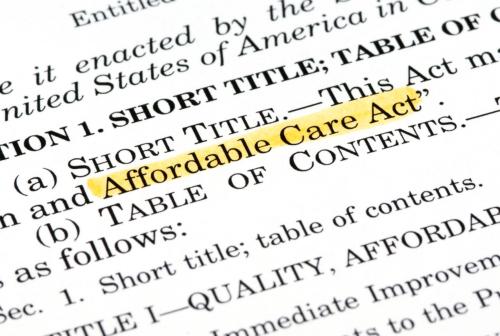The post here is a slightly edited version of
Old Practices Die Hard
, which appeared on the usnews.com blog
Policy Dose
Unnecessary and harmful medical procedures are a major source of waste in the U.S. health care system. Prostate-specific antigen (PSA)-based screening for prostate cancer is an example of such procedures. According to the U.S. Preventive Services Task Force (USPSTF) “there is moderate certainty that the benefits of this procedure do not outweigh the harms”. Despite USPSTF discouragements, Medicare spent $132.6 million on PSA-based prostate cancer screening in 2012.1 If physicians are recommended not to perform this test, then why do they continue to do so? One can think of two obvious reasons. First, the scientific evidence on the benefits and harms of such tests is not yet exactly clear and thus clinicians have to rely on their own medical hunch rather than solid and irrefutable medical guidelines to make decisions. The second is the usual suspect; physicians make money from doing these unnecessary tests. As long as physicians are continued to be compensated for volume rather than value, they will be financially inclined to perform as many tests as possible.
In their recent paper, Peter Ubel and David Asch offer additional psychological explanations for why it is difficult for clinicians to “de-innovate and give up old practices, even when new evidence reveals that those practices offer little value.” They argue that the preconceptions of physicians lead them to scrutinize the studies that provide evidence against their initial beliefs and instead have a bias towards the studies that confirm their position. If you enjoy steak, then it is much easier for you to accept the studies which conclude eating cholesterol and saturated fat do not raise cholesterol levels in the blood. On the other hand, if you are a vegetarian, then you may look for the methodological shortcomings in such studies that can be used to discount their conclusions. Moreover, physicians just like anyone else, are more likely to remember rare events. Many of us know someone who has won the lottery or hit the jackpot in their last trip to Vegas. Likewise, “ a practicing breast surgeon might more easily recall a single heartrending example of a young patient who died of advanced breast cancer and who had failed to receive a screening mammogram, compared to hundreds of patients who did fine without mammography “. The other one is incorrectly inferring causality from correlated events. The authors point to former New York Mayor Rudy Giuliani as a prime example of this; Giuliani credited a PSA-based screening with discovering a tumor and saving his life, “even though it is impossible to know whether Giuliani would have died of cancer if the tumor had not been discovered so early or might even have been better off without the test.” The last reason for the reluctance of physicians and patients to give up the unnecessary test arises from the endowment effect: “when things are taken away, people tend to place an even greater value on them than they would have otherwise”. Ubel and Asch argue that patients gradually develop a sense of ownership over the medical tests and procedures that they received and thus “are largely convinced that screening tests have saved more lives, and at less harm, than a cautious view of the science would justify.”
But there’s hope. According to the study of Ma et al., the total cost of prostate cancer screening to Medicare was $447 million in 2009. Adjusting for inflation, that’s a 70 percent decrease in a period of just 5 years. Certainly, more work needs to be done to cut other unnecessary testing costs, but such a decline suggest doctors are moving in the right direction.
To overcome the resistance to de-innovation, Ubel and Asch recommend the guideline development committees be made up of medical experts from a wide variety of domains with different clinical expertise so that they can cancel out each other’s conformation bias. Making medical decisions based on hard data rather than opinions is their second recommendation. Although this may seem trivial, the authors note that in controversial issues people seem to forget about the importance of data and continue to defend their opinions and preconceptions. To dampen the effects of the endowment effect, we should avoid “indication creeps” and retain the application of medical treatments to only those patients for whom such treatments are originally designed. Finally, clinicians can use their awareness of these psychological phenomena to better interpret evidence-based guidelines.
1 The figures are calculated by author based on the Medicare Provider Utilization and Payment Data and only include the procedures with HCPCS codes G0103, 84152, 84153, and 84154.



Commentary
How to kill doctors’ old habits
June 1, 2015